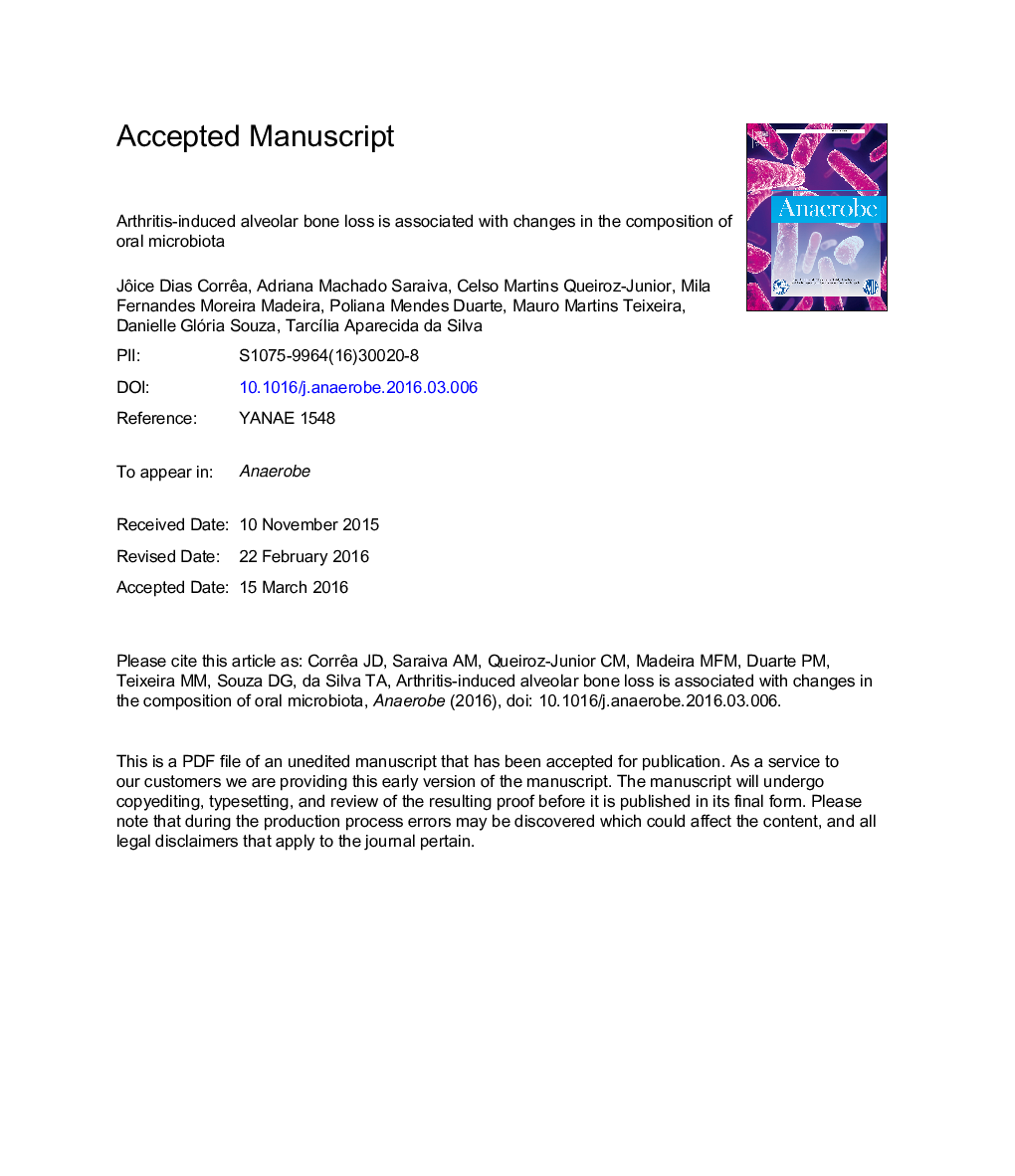| Article ID | Journal | Published Year | Pages | File Type |
|---|---|---|---|---|
| 6128591 | Anaerobe | 2016 | 24 Pages |
Abstract
Rheumatoid arthritis (RA) and periodontitis (PD) are chronic inflammatory disorders that cause bone loss. PD tends to be more prevalent and severe in RA patients. Previous experimental studies demonstrated that RA triggers alveolar bone loss similarly to PD. The aim of this study was to investigate if arthritis-induced alveolar bone loss is associated with modification in the oral microbiota. Checkerboard DNA-DNA hybridization was employed to analyze forty oral bacterial species in 3 groups of C57BL/6 mice: control (n = 12; without any challenge); Y4 (n = 8; received oral inoculation of Aggregatibacter Actinomycetemcomitans strain FDC Y4) and AIA group (n = 12; chronic antigen-induced arthritis). The results showed that AIA and Y4 group exhibited similar patterns of bone loss. The AIA group exhibited higher counts of most bacterial species analyzed with predominance of Gram-negative species similarly to infection-induced PD. Prevotella nigrescens and Treponema denticola were detected only in the Y4 group whereas Campylobacter showae, Streptococcus mitis and Streptococcus oralis were only found in the AIA group. Counts of Parvimonas micra, Selenomonas Noxia and Veillonella parvula were greater in the AIA group whereas Actinomyces viscosus and Neisseira mucosa were in large proportion in Y4 group. In conclusion, AIA is associated with changes in the composition of the oral microbiota, which might account for the alveolar bone loss observed in AIA mice.
Related Topics
Life Sciences
Immunology and Microbiology
Microbiology
Authors
Jôice Dias Corrêa, Adriana Machado Saraiva, Celso Martins Queiroz-Junior, Mila Fernandes Moreira Madeira, Poliana Mendes Duarte, Mauro Martins Teixeira, Danielle Glória Souza, TarcÃlia Aparecida da Silva,
